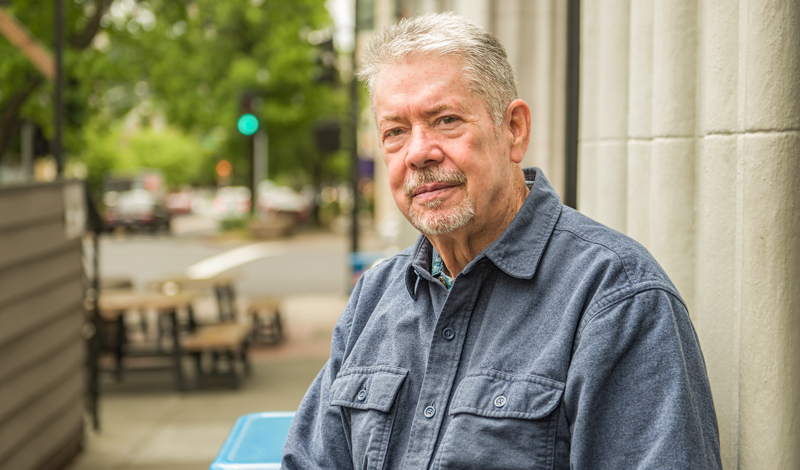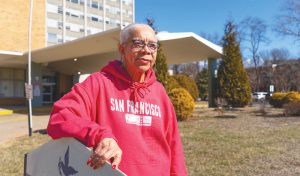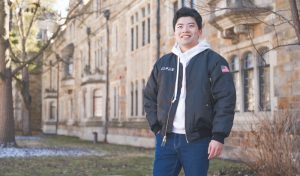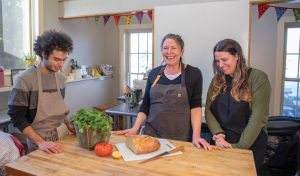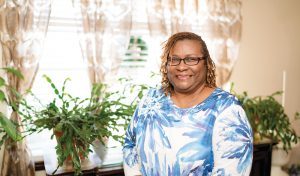by Mike Holland
Novato, Calif.
Certain things run deep in a person—their sense of humor, for instance; an off-color one in my case. I have no memory of flipping the middle finger salute to my three daughters and the nurse, but apparently this is how I hailed them as they made their way down the hall, to my room in the ICU. The nurse, my daughters later informed me, was horrified, but my daughters burst out laughing.
“It’s our dad’s sense of humor,” they told her. “It means he’s back; we think he’ll be OK.”
A few days earlier, on Dec. 10, 2017, I had a cerebral aneurism, a hemorrhagic stroke. One in five don’t live to see the ambulance. Another 20% die soon after. I was fortunate to have my friend call an ambulance that took me to the emergency room where I was given a CT scan, then whisked to a stroke center in Redwood City. There, they induced a coma. For six days the medics could not tell my family if I would ever walk, talk or even wake up.
My daughters, Zoe, Sally and Kelly came to my side, one flying in from the East Coast the same day. As far as I know, they don’t chant on a regular basis, but Nam-myoho-renge-kyo is deep within their lives. When the chips were down, when I was in trouble, they knew what to do. They sat down to chant and do gongyo together. In that moment, they knew their daimoku would reach me. It did.
I regained consciousness two weeks later on what I thought was a French cruise, mistaking the nurses’ uniforms for the starched whites of a cabin crew. Actually, I was at the Kaiser hospital in San Rafael. My first lucid thought was a memory, a piece of advice I’d given Sally when she was 4 years old. “You’d best learn gongyo,” I’d quipped, “in case you ever go to prison and they take your belongings. It won’t matter because you’ll know it by heart.”
She’d nodded firmly. “All right dad.”
It was an enormous effort, but I wheeled myself to a quiet spot of the hospital and began reciting gongyo by heart. As I did, I felt my mind begin to clear. This was a hospital, not a cruise ship. I’d had a stroke and was here to recover. Other things, too, began to fall into place. From that point on, I was back on my old rhythm of morning and evening gongyo, a rhythm that has fueled my growth since I began practicing Buddhism in 1972, and one I’d rely on all the more in the years to come.
At the end of 2020, 90% recovered from the stroke, I began to notice certain symptoms: held in a particular position, my hands tremored involuntarily. Typing became more difficult. Signing a mail-in ballot, I was shocked at the state of my penmanship. When I went to my doctor about these symptoms, I was diagnosed with Parkinson’s. I laughed.
“Ah—I’ve been through a stroke! This is nothing!” Oh, I had a lot to learn about Parkie’s! At the same time, my doctors were the first to admit they, too, had a lot to learn; Parkinson’s has been called the least understood neurological disease. Visible motor symptoms, like tremors, make up just 20% of symptoms. The other 80% are below the surface—internal, nonmotor symptoms like depression, shame and a sense of isolation among them.
Grasping the gravity of the diagnosis, I sat down to chant with a prayer to fight with all my might. I wasn’t going to take this sitting down. Soon, I’d found several Parkinson’s groups, including dance and boxing classes.
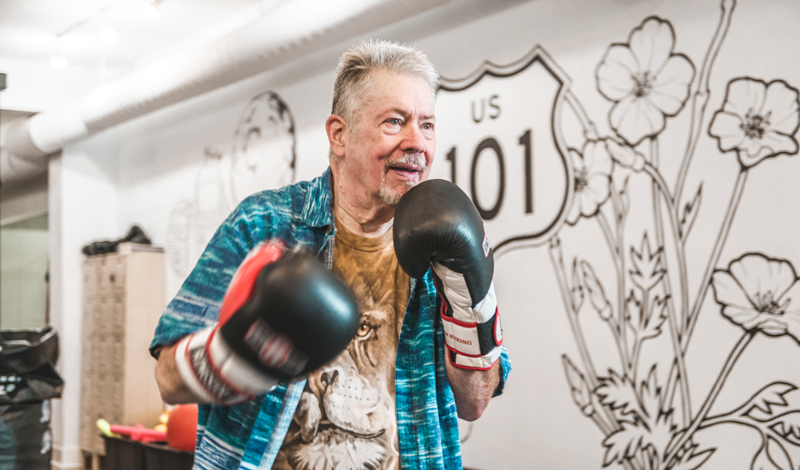
Attending these groups for the first time, some people show up aghast, in denial, feeling, This cannot be happening to me! But others show up with huge smiles—extraordinary people—who call out to you as soon as they walk into the room, “Hello!” From the jump, I decided I wanted to be one of the people who brightened the room, who uplifted others.
Sometimes when I notice a new symptom, I get this frightening feeling, like when you’re standing on the beach, on the surf, and the sand is being worn away underfoot. But then I think I’ve got this interview coming up, photoshoot coming up, a district meeting, kosen-rufu gongyo, my boxing, dance and writing classes, and I think: I’m a Buddhist! I’ll be damned if I show up without putting up a fight! I’ll show up as a positive force!
Chanting with this spirit, I’ve found I can generate a strength that is warm and positive—more so perhaps than in relatively “healthier” parts of my life.
I mentioned that some people get stuck in the initial phase of denial, unable to grasp that a Parkinson’s diagnosis is in fact their new reality. Maybe because I’m a child at heart, maybe because I’m a Buddhist, you could say that, in a positive sense, I’m also “stuck” in this phase. At present, there’s no known cure for Parkinson’s, but I haven’t given up. We practice Buddhism precisely to accomplish what seems impossible.
So, the other day, I gave my friend a ride to the boxing gym where we did our set of drills. Chanting that morning, I prayed that I’d make her smile, make her laugh, encourage her to hit the bag, the target mitts—make ‘em pop! I chanted to enable her to express her determination, her confidence—that with every strike, she’d feel as though she were returning the advance of her Parkinson’s.
“You’re a fighter, Mike,” my boxing coach remarked, watching me during a drill.
“No baloney?”
“No baloney.”
I can’t tell you how good that made me feel. As a Buddhist, comments like these are like a barometer. Am I fighting? Am I encouraging those around me? I ask myself, What value could there possibly be in my having an incurable neurological disease other than to encourage others to overcome their seemingly insurmountable obstacles?
Invariably, I conclude: If what I can do with my life is encourage somebody else, then yeah, I’m down with that.
Q: What advice would you give the youth?
Mike Holland: Don’t quit! There are many temptations along the road to give up or to say this isn’t working. But don’t quit. Always find your way to stick with the SGI. If you persevere throughout your life, at the end of it, things get really wonderful. It’s not just the absence of pain and suffering—your interactions with other people become so meaningful.
You are reading {{ meterCount }} of {{ meterMax }} free premium articles

